Former Yankees great Bobby Richardson opens up on Mantle, Maris and why he retired at 31
- Oops!Something went wrong.Please try again later.
- Oops!Something went wrong.Please try again later.
- Oops!Something went wrong.Please try again later.
Bobby Richardson, this week’s star of “Sports Legends of the Carolinas,” was a notable New York Yankee who never fully left his South Carolina hometown.
Born and raised in Sumter, about 110 miles southeast of Charlotte, Richardson still lives there today, with his wife Betsy. He will turn 88 years old on Aug. 19 but still sports a remarkable memory, especially about the time he spent wearing the Yankees’ famous pinstripes.
Richardson played for the Yankees for his entire major league career from 1955-1966, competing in seven World Series and winning three of them with teammates like Mickey Mantle, Roger Maris and Yogi Berra. He was a seven-time All-Star before retiring at age 31.
Later, Richardson would become a college baseball coach for three different teams — including South Carolina — and a well-known Christian speaker. We spoke at his home in Sumter, surrounded by memorabilia of his career.
This interview is edited for clarity and brevity. For a much fuller version, check out the “Sports Legends of the Carolinas” podcast.
Scott Fowler: What are the main differences in Major League Baseball in the 1950s and ‘60s compared to today’s game?
Bobby Richardson: If I had to say one word, I’d say it’s finances. My first year with the Yankees the minimum salary was $5,000, and that’s what I made. The next year, the minimum salary went up to $7,500 and I thought, “Boy, what am I gonna do with all this money?” And now the multimillion-dollar contracts are unbelievable.
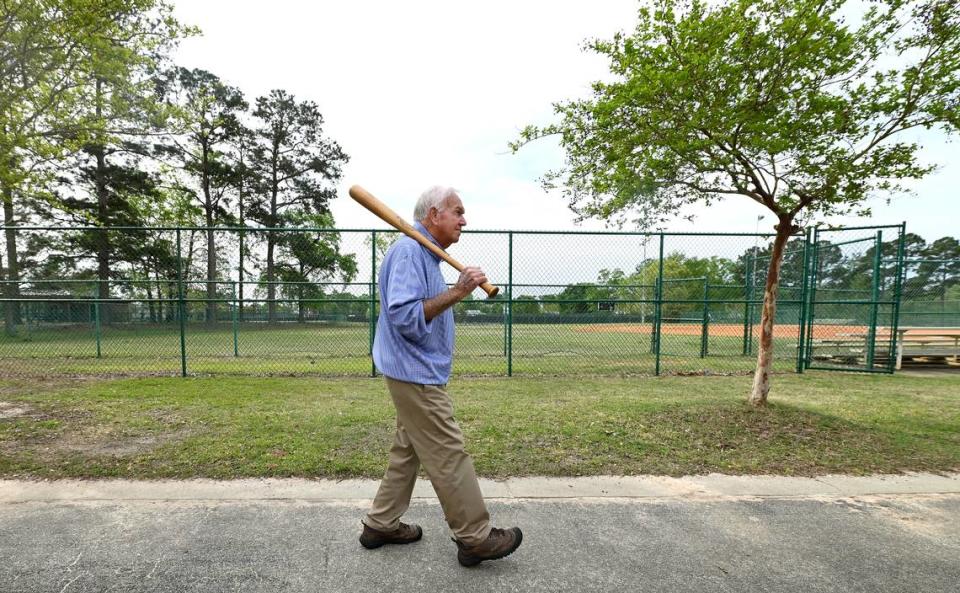
SF: Weren’t you cut from your high school baseball team the first time around?
BR: Yes. I was a little disappointed, but my dad said, “Why don’t you try for the (American) Legion team?” And I did, and I made it. We won the state championship and regional championship and were playing in Charlotte against Richmond.
Before the game, they took us out to see the film “The Pride of the Yankees,” the story of Lou Gehrig, with Gary Cooper playing the part. And I remember (watching) that film thinking, “Man, that’s the greatest organization I’ve ever seen. Boy, would I like to be a part of that.”
When I got to the last game there (in Charlotte), there was a Yankee scout there. ... When the game was over, he came up and said, “I can promise you that when you graduate from high school, you’ll have a chance to sign with the Yankees.” He kept his word. They kept in touch.
And sure enough, I signed with the Yankees. I had two quick years in the minor leagues, and I was up (to the majors) at 19. And what wonderful years I had in New York.
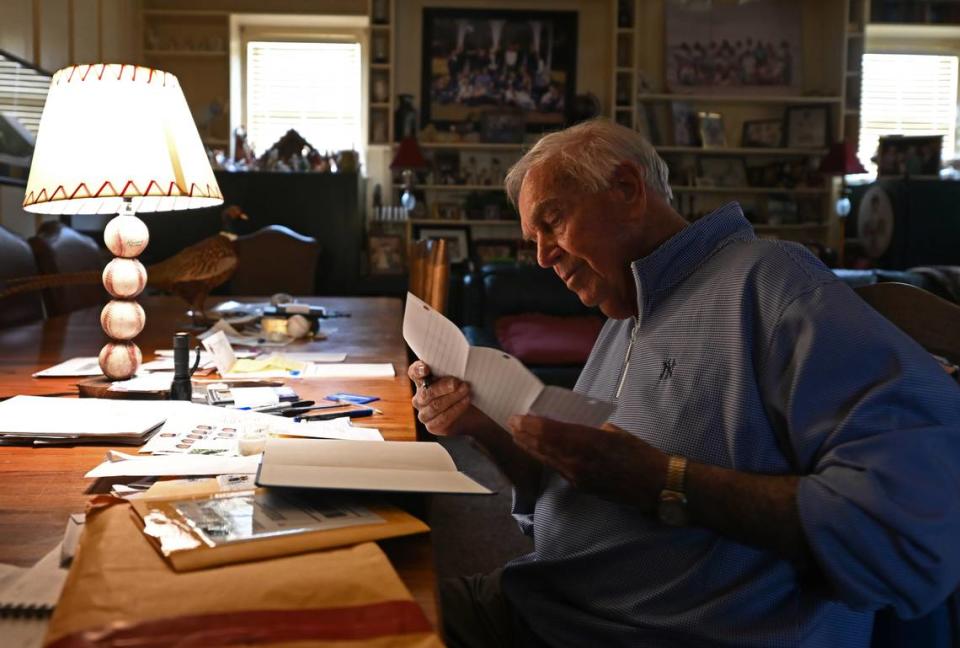
SF: You and Mickey Mantle had a unique friendship, even though you had very different personalities.
BR: Well, he enjoyed life, let me put it that way. What a wonderful guy. I did have a great experience with him, as a player and then later in life. He and I did a lot of things. He and I had a little place together in Boone. One year, we were both grand marshals of a ski festival. He didn’t know how to ski and I didn’t know how to ski. And they filmed it on a lift, like we knew what we were doing.
SF: In Sumter, growing up, wasn’t your Dad in the tombstone business?
BR: Yes — Richardson Marble and Granite. And his folks before that also were in the tombstone business. He worked hard. He loved baseball but didn’t have a chance to play because he had to work, but he made sure that I had a chance to play baseball.
As an 8-year-old, I’d go down there on Saturdays. They’d always be putting a monument somewhere in some of the cemeteries close by, and I had a deal where I’d pick up the signs the funeral home left signifying who’s the grave site for. I’d take that sign and turn it back into the funeral home, which was right next door to my dad’s business, and they’d give me $5.
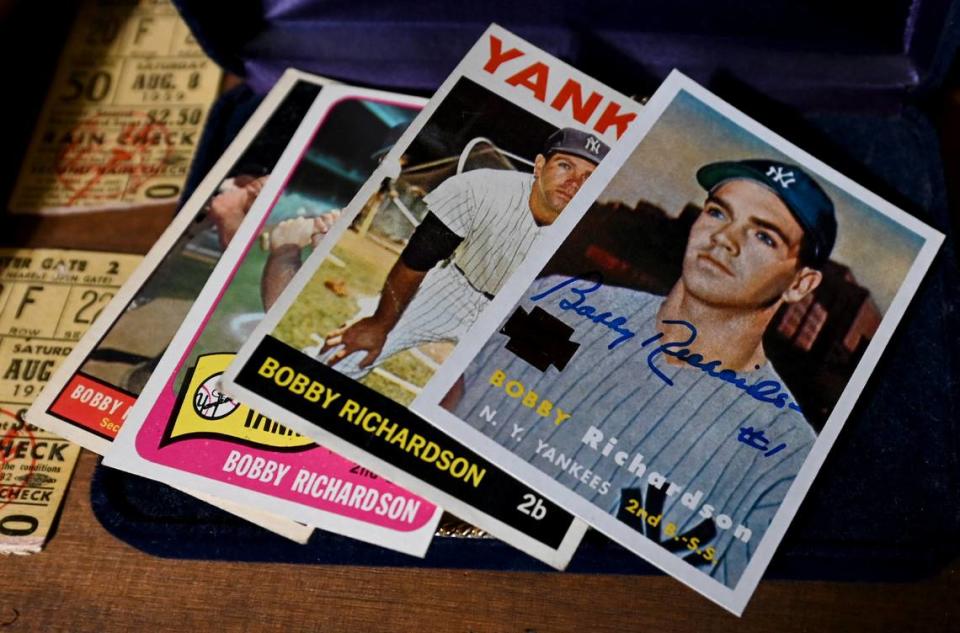
SF: You played in a lot of World Series and have a lot of memories from them. What are some of your favorites?
BR: One was the third game of the 1960 World Series. I was supposed to be bunting. Casey Stengel had me batting down (eighth), and the pitcher was up next. The bases were loaded and we were ahead 1-0, in the first inning. They gave me the bunt sign, but I fouled it off twice. Then I was trying to hit the ball to right field and stay out of the double play. Clem Labine threw a fastball in there and I hit it good.
My teammates congratulated me at the plate, the three that were on base, and I realized, “Man, I’ve just hit a grand slam home run!”
I walked to the dugout. Stengel’s response was: “Good bunt.”
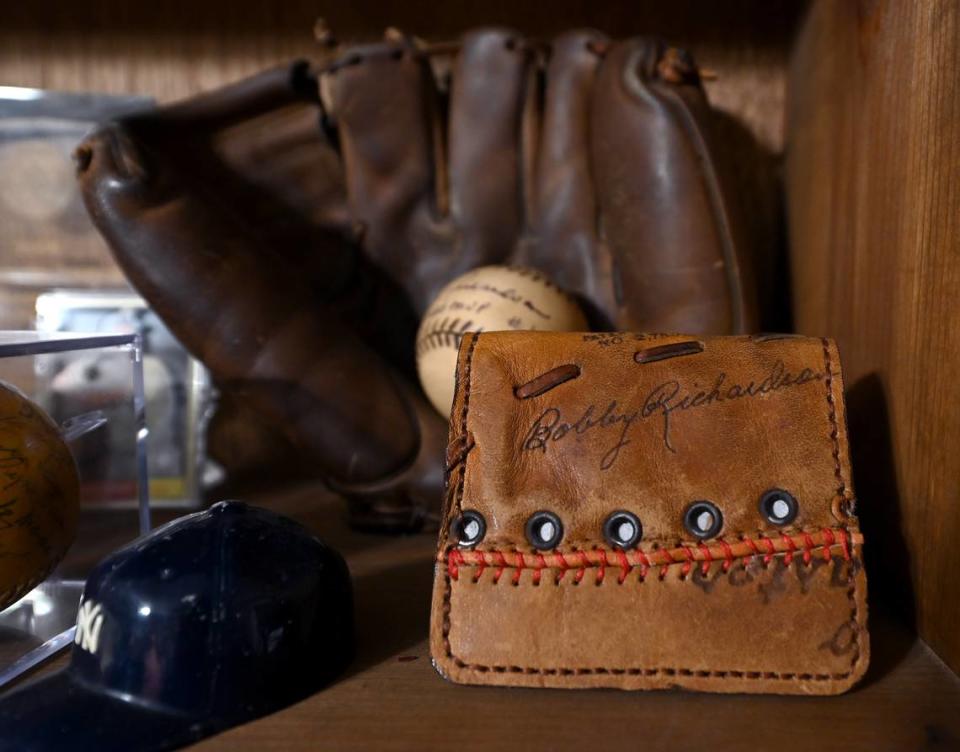
1962 World Series: ‘I bet your hand still hurts’
SF: You famously caught a line drive to win a World Series in Game 7. Tell us about that one.
BR: That was the 1962 World Series. We were leading 1-0 going into the ninth inning. They had Matty Alou on third and Willie Mays on second (after Mays had doubled). Two outs. Our manager Ralph Houk came out to talk to the pitcher, Ralph Terry, about whether to pitch to Willie McCovey. While he was doing that I walked over to second base. (Yankees shortstop and close friend) Tony Kubek and I roomed together and Kubek said to me: “I sure hope Willie McCovey doesn’t hit the ball to you.”
I asked why and he said: “Well, you’ve already made one error in this series. I’d hate to see you blow it now.”
And then, just as Terry was about to deliver the pitch, the umpire behind me said to me, “Hey, Rich, could you give me your cap, for my cousin?”
I was still thinking about all that and McCovey hit what he told me later was the hardest ball he ever hit. But I caught it. And so the Yankees won, and I gave my hat to the umpire.
SF: The umpire asked for your hat in the middle of Game 7?
BR: Yes, he did. It was a National League umpire, too, not even an American League one.
About 45 years later, I saw McCovey, at the new stadium in San Francisco. It was the first time I’d seen him (since the World Series). And he said to me: “I bet your hand still hurts.”
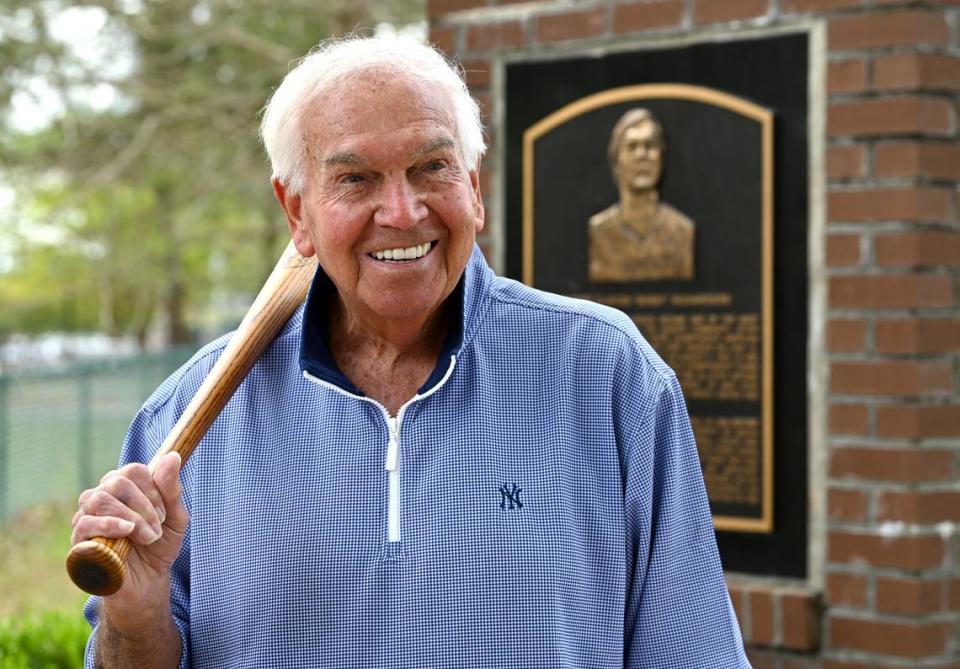
SF: You were a slick fielder with five Golden Glove awards. There’s also a famous Casey Stengel quote about you: “He doesn’t drink, he doesn’t chew, he doesn’t stay out late and he still can’t hit .250.”
BR: It’s a funny thing, but I hit great in the minor leagues. In the rookie league, I hit .412. I was second in the league in batting in Triple A. The pitching is good in Major League Baseball, but I did lead the American League in hits one year (209, in 1962). I didn’t walk much. People ask me why: Well, they wouldn’t walk you if you were a light hitter and you had hitting behind you Roger Maris, Mickey Mantle, Elston Howard, Yogi Berra and so on. Stengel later amended his quote, although nobody printed it, and said I was “the best .260 hitter I ever had.” (Richardson hit .266 for his MLB career).
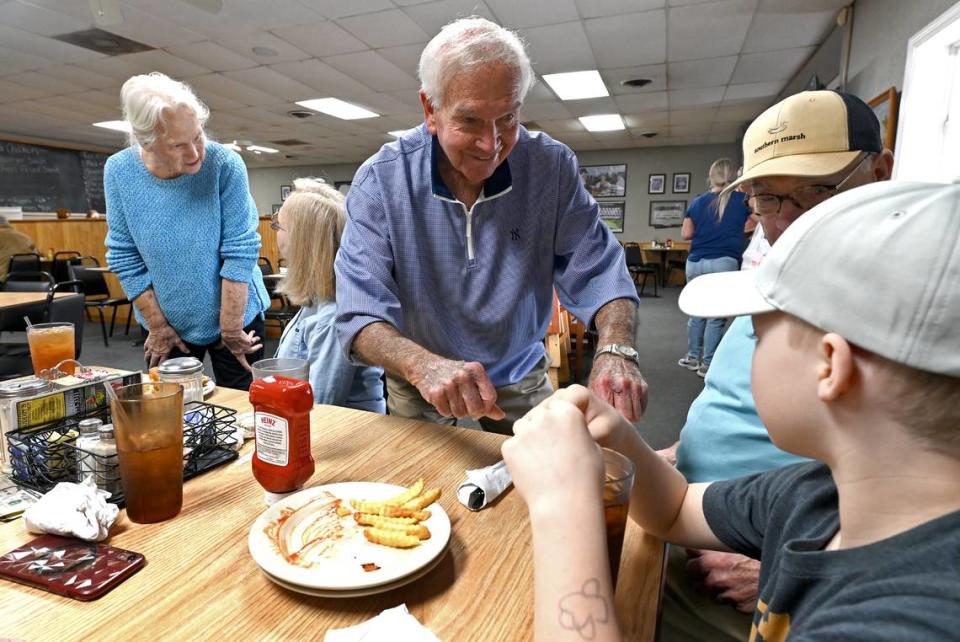
SF: You retired at age 31, which is young for a ballplayer. Why?
BR: Yes, I played in my first old-timers game when I was still 31. I could have played five more years. I was in good shape. I made the all-star team the last (five) years in a row. But I just felt like that I’d been there and we’d done so well, and I wanted to spend more time with my family. I had two boys that I missed out on all the years they were playing Little League and so forth. I had two girls. And at that time our fifth child had not been born. He was born after I retired and came back home to Sumter. It’s probably the best decision I’ve ever made.
SF: You’re not a pastor, but you are a well-known Christian speaker who spoke several times alongside Billy Graham. How many of your Yankee teammates’ funerals have you participated in?
BR: I’ve had a dozen of my teammates’ funerals over the years. Each time it’s different. Once I was speaking at Roger Maris’ funeral — his wife had asked me to represent the Yankees and have the eulogy there — and Mickey Mantle sat down by me afterward and said, “I want you to have my funeral.”
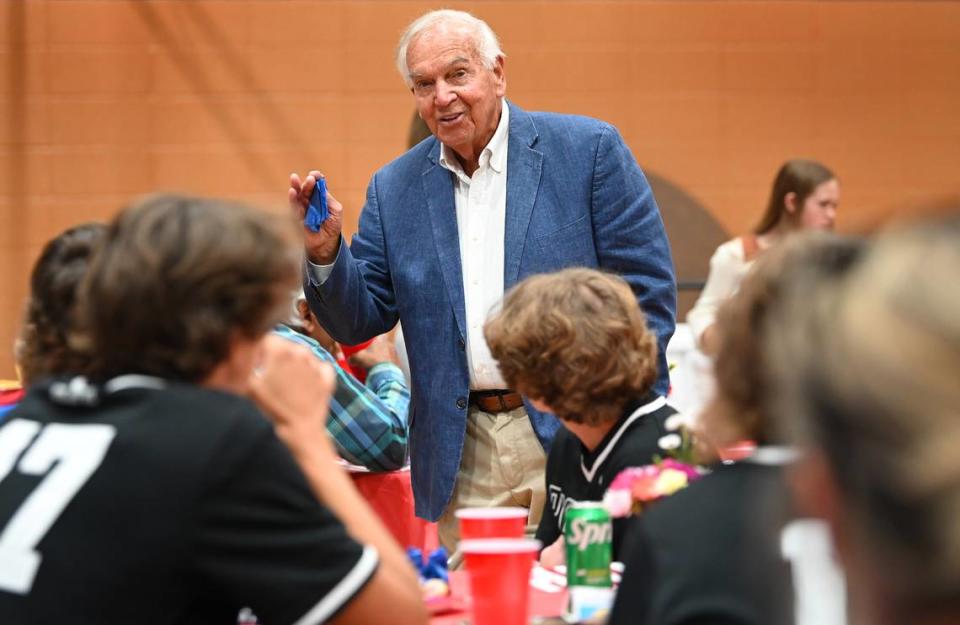
We kept in touch over the years and sure enough, I did have it. I have two sons that are pastors and two grandsons that are pastors. They’ve all finished seminary. I’m not a pastor, but the Lord has given me wonderful opportunities.
SF: What did you do after you retired from the Yankees?
BR: (Former South Carolina athletic director) Paul Dietzel came over and asked me if I’d like to be the baseball coach at South Carolina. I turned him down once, then turned him down the second time. But fortunately for me, he came the third time and said: “I won’t bother you anymore, but I’d really like you to coach baseball at University of South Carolina.” I said that time I’m ready to try. ... (Richardson would later also coach baseball at Coastal Carolina and at Liberty). In our best year at South Carolina we went 51-6 and got to the final game of the College World Series, losing to Texas (in 1975).”
SF: You’ve always come back to Sumter no matter what, and the house we’re sitting in you built while we were still playing right?
BR: Yes. Right after the World Series we lost against Pittsburgh (in 1960), when Bill Mazeroski hit the home run, we came home and bought this lot. There was just one home in this development and dirt roads all around.I thought it’d be out in the country, that I could let my bird dogs out and shoot quail in the backyard. It’s since grown up all around us. I did bring some bases home from Yankee Stadium and my kids enjoyed those games in the backyard.
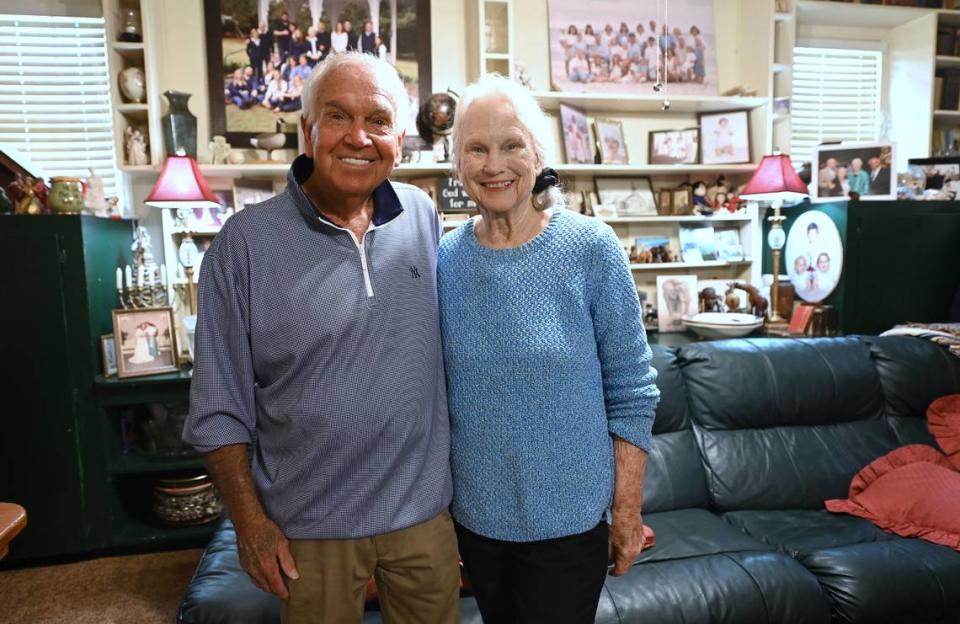
SF: You and your wife Betsy have been married for…
BR: 66 years. She’s doing well. She does have kidney failure and is on dialysis at night, but we can still travel a little bit. We go down to the beach occasionally when our grandchildren are down there. We have 18 grandchildren and 18 great-grandchildren.
SF: One more baseball story. You were in the middle of the Maris/Mantle home run duel in 1961, when Maris eventually broke Babe Ruth’s home run record with 61 homers and Mantle finished with 54. Tell us about that.
BR: We were all pulling for Mantle, being a Yankee, to be the one to break Babe Ruth’s home run record.
SF: Why?
BR: Because he had the background. Roger was traded in (from Kansas City). ... I can’t believe this, but there were people booing Mickey Mantle a little bit if he’d strike out three times or something like that. And when Roger came on board (before the 1960 season), there was no more booing for Mickey. They started booing Roger. Yankee fans are (tough).
Mantle had an infection on his side and couldn’t play the last three weeks of the season. So our allegiance switched over to Roger. But Roger started losing his hair. He just had no peace at all. The only time he was satisfied was actually playing the game itself.
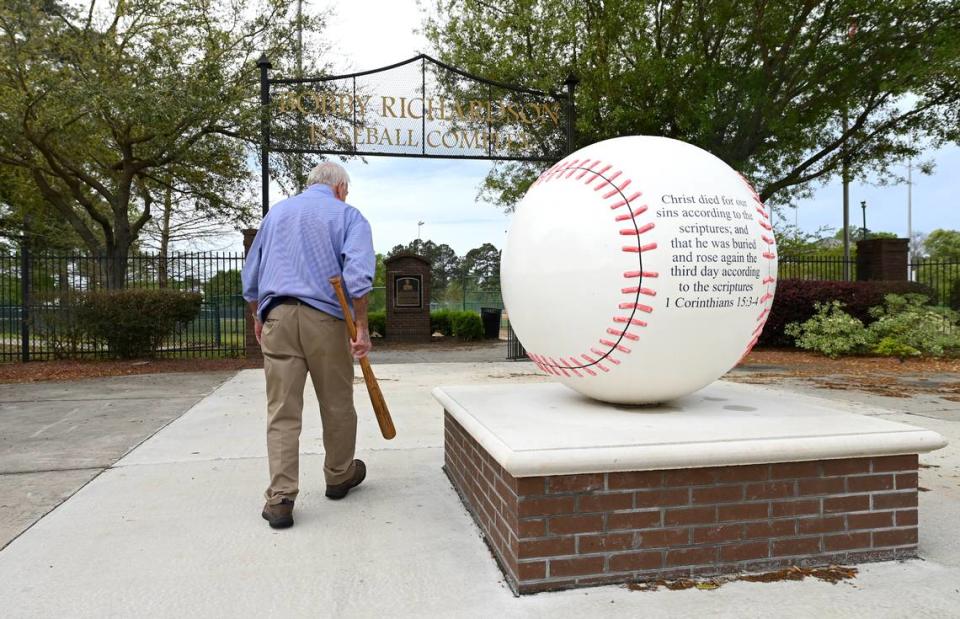
In the last game, Roger wanted to sit out. He didn’t care about breaking the record. He really didn’t. He’s the most humble guy I think I’ve ever met. And Ralph (Houk, the team’s manager) talked him into playing that last game. He hit a home run (in the 162nd and final game of the season) and broke the record. And I remember when he came in the clubhouse he didn’t acknowledge the fans at all. We pushed him out of the dugout and made him go back up, and he just tipped his cap.
For much more from this interview as well as other “Sports Legends” guests like Steph Curry, Mike Krzyzewski, Roy Williams, Jeff Gordon and Dawn Staley, check out the “Sports Legends of the Carolinas” podcast. The “Sports Legends of the Carolinas” coffee table book debuts in November 2023 and is now available to pre-order — at a 20% discount — at SportsLegendsBook.com.


